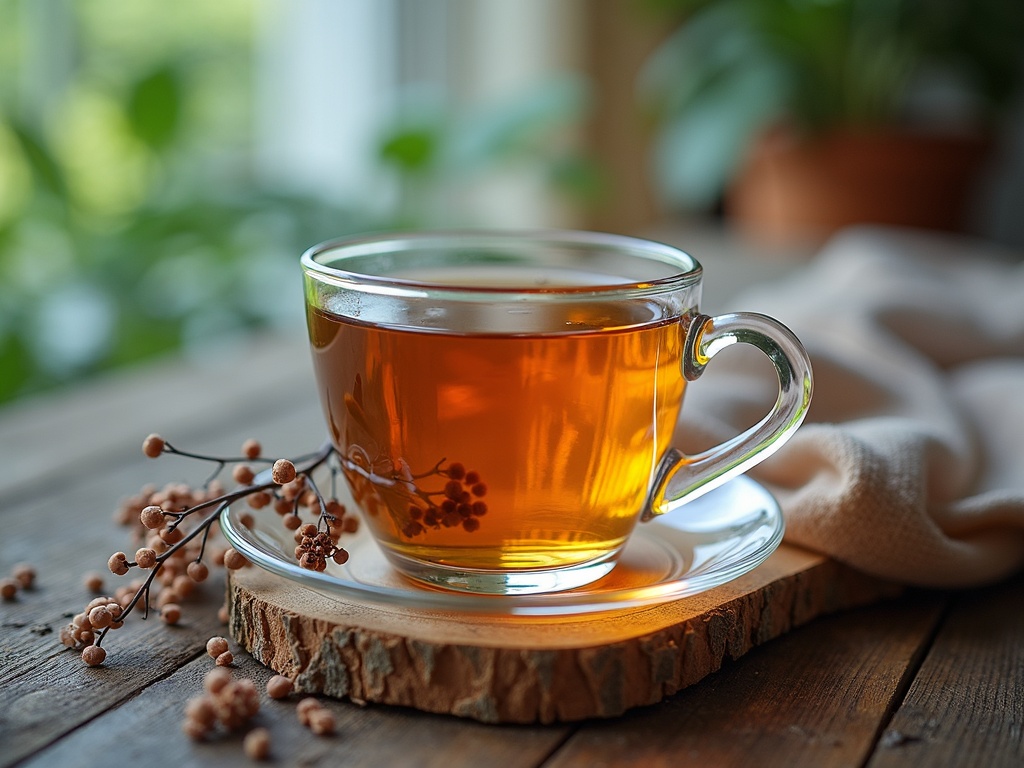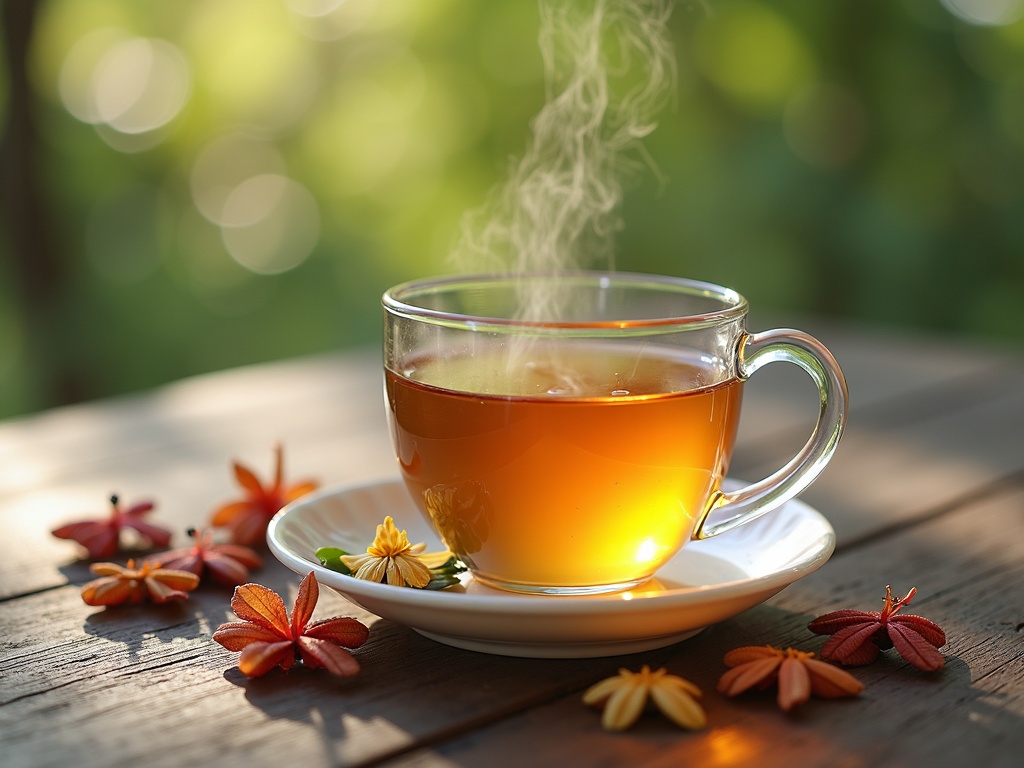Sip Your Way to Slumber: The Best Teas to Drink Before Bed for Relaxation
The day is done, the to-do list (mostly) conquered, and the only thing standing between you and blissful sleep is…well, your racing mind. Sound familiar? In today's hectic world, unwinding before bed can feel like a Herculean task. But what if the answer was as simple as brewing a cup of tea? Not just any tea, mind you, but one carefully selected to soothe your nerves, calm your thoughts, and gently usher you into dreamland. Let’s explore the best teas to drink before bed for relaxation.
The Science Behind Sleep-Promoting Teas
Before we dive into specific types of tea, let's understand why certain teas are effective sleep aids. The magic lies in their unique compounds, primarily:
- L-Theanine: An amino acid known for its calming effects. It promotes relaxation without drowsiness, reducing anxiety and improving sleep quality.
- Apigenin: An antioxidant with sedative properties, found in chamomile. It binds to certain brain receptors that may decrease anxiety and initiate sleep.
- Herbal Properties: Many herbs naturally possess relaxing and sedative qualities, making them ideal for bedtime brews.
Top Teas for a Relaxing Night
Now, let's explore the stars of the show – the teas that can help you trade tossing and turning for peaceful slumber.
Chamomile Tea: The Classic Sleep Soother
Ah, chamomile. The quintessential bedtime tea. Its delicate floral aroma and mild flavor are instantly comforting. But beyond its pleasing taste, chamomile boasts impressive sleep-promoting properties. Studies have shown that chamomile tea can improve sleep quality and reduce anxiety. Apigenin, a key component in chamomile, is believed to be responsible for these effects. It binds to receptors in the brain that can promote relaxation and reduce anxiety.
Lavender Tea: A Fragrant Path to Tranquility
Lavender is renowned for its calming fragrance, often used in aromatherapy to reduce stress and anxiety. Drinking lavender tea offers a similar effect, gently lulling you into a state of relaxation. Research suggests that lavender can increase slow-wave sleep, the deepest stage of sleep, and help you feel more refreshed in the morning. Its soothing scent alone can be enough to quiet a restless mind.
Valerian Root Tea: A Potent Sleep Aid
Valerian root is a powerful herb traditionally used to treat insomnia and anxiety. While its aroma can be quite earthy (some might even say pungent), its effectiveness is undeniable. Valerian root works by increasing the amount of gamma-aminobutyric acid (GABA) in the brain, a neurotransmitter that helps regulate nerve impulses and promote relaxation. It's a stronger option than chamomile or lavender and may be particularly helpful for those with more severe sleep issues.
Lemon Balm Tea: A Citrusy Serenity
Lemon balm, a member of the mint family, offers a refreshing citrusy flavor and a calming effect. Studies have shown that lemon balm can reduce anxiety and improve sleep quality, especially when combined with other herbs like valerian root. Its gentle nature makes it a good option for those who are sensitive to stronger sedatives.
Passionflower Tea: Calming the Mind Chatter
Passionflower is another herb with anxiety-reducing and sleep-promoting properties. It works by increasing the levels of GABA in the brain, similar to valerian root. Passionflower tea has a mild, slightly earthy flavor and can be a good alternative for those who don't enjoy the taste of valerian. It's often used to calm racing thoughts and reduce restlessness before bed.
Magnolia Bark Tea: Ancient Remedy for Modern Sleep
Magnolia bark has been used in traditional Chinese medicine for centuries to treat anxiety and sleep disorders. It contains compounds called honokiol and magnolol that have potent anti-anxiety and sedative effects. Magnolia bark tea has a slightly sweet, woody flavor and can be a helpful option for those who struggle with chronic stress and insomnia.
Ashwagandha Tea: An Adaptogenic Approach to Sleep
Ashwagandha is an adaptogenic herb, meaning it helps the body adapt to stress. While not a direct sedative, ashwagandha can indirectly improve sleep by reducing anxiety and promoting relaxation. It has a slightly bitter, earthy flavor and is often combined with other herbs like chamomile or ginger. Over time, regular consumption of ashwagandha tea may lead to improved sleep quality and a greater sense of calm.
How to Brew the Perfect Bedtime Tea
Brewing the perfect cup of bedtime tea is an art in itself. Here are a few tips to ensure optimal relaxation:
- Use High-Quality Tea: Opt for loose-leaf tea or high-quality tea bags for the best flavor and benefits.
- Use Filtered Water: Filtered water ensures a pure, clean taste.
- Proper Water Temperature: Different teas require different water temperatures. Generally, herbal teas steep best with boiling water (212°F), while green teas prefer slightly cooler temperatures (170-185°F).
- Steep Time: Follow the instructions on the tea package for the recommended steep time. Generally, herbal teas steep for 5-7 minutes.
- Cover While Steeping: Covering the tea while steeping helps to retain heat and volatile oils, maximizing flavor and benefits.
- Additives: A touch of honey or lemon can enhance the flavor of your tea. However, avoid adding sugar, as it can interfere with sleep.
When to Drink Your Bedtime Tea
Timing is key when it comes to drinking bedtime tea. Aim to sip your tea about 30-60 minutes before you plan to go to bed. This allows the calming effects to kick in and prepare your body for sleep. Avoid drinking tea too close to bedtime, as it may lead to nighttime awakenings due to the need to urinate.
Things to Consider Before Drinking Tea for Sleep
While most of these teas are generally safe, it’s essential to be mindful of a few considerations:
- Caffeine Sensitivity: Ensure the tea is truly caffeine-free. Even minimal amounts of caffeine can disrupt sleep, especially for sensitive individuals.
- Allergies: If you have allergies to plants, be cautious when trying new herbal teas. Start with a small amount to see how your body reacts.
- Medications: Some herbs can interact with medications. Consult with your doctor or a qualified healthcare professional before using herbal teas, especially if you are taking any prescription medications.
- Pregnancy and Breastfeeding: Certain herbs are not safe for pregnant or breastfeeding women. Always consult with your doctor before consuming herbal teas during pregnancy or breastfeeding.
Beyond Tea: Creating a Relaxing Bedtime Routine
While tea can be a valuable tool for promoting relaxation and sleep, it's most effective when combined with a consistent and relaxing bedtime routine. Here are a few tips to create a sleep-conducive environment:
- Establish a Regular Sleep Schedule: Go to bed and wake up around the same time each day, even on weekends, to regulate your body's natural sleep-wake cycle.
- Create a Relaxing Bedtime Routine: Engage in calming activities before bed, such as reading, taking a warm bath, or listening to soothing music.
- Optimize Your Sleep Environment: Make sure your bedroom is dark, quiet, and cool.
- Limit Screen Time Before Bed: The blue light emitted from electronic devices can interfere with sleep. Avoid using smartphones, tablets, and computers for at least an hour before bed.
- Avoid Alcohol and Caffeine Before Bed: Alcohol and caffeine can disrupt sleep patterns.
Finding Your Perfect Bedtime Brew
Experiment with different teas to find the ones that work best for you. What soothes one person might not work the same way for another. Pay attention to how your body responds to each tea and adjust accordingly. It may take some trial and error to discover your perfect bedtime brew. Consider keeping a sleep diary to track your sleep quality and identify any patterns or triggers.
Embrace the Ritual
More than just the chemical properties of the tea itself, the *ritualof preparing and enjoying a warm cup of tea can be profoundly calming. Taking a few moments to mindfully brew your tea, savor the aroma, and relax as you sip it can signal to your body that it's time to unwind and prepare for sleep. It’s a simple act of self-care that can make a world of difference.
Sweet Dreams Await
With a little experimentation and the right cup of tea, you can transform your bedtime routine into a soothing sanctuary and sip your way to a restful night's sleep. So, the next time you find yourself staring at the ceiling, try brewing one of these sleep-promoting teas and embrace the tranquility they offer. Your body (and your mind) will thank you.


